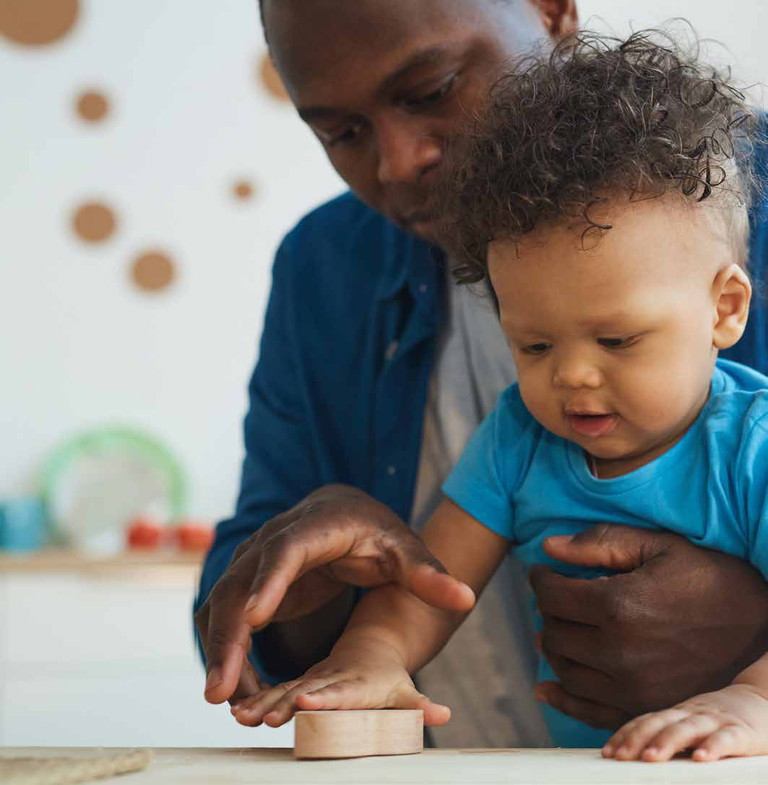TRAINING
Key person, key principles
Julie Pearson, early years development manager at the Alliance, explains the important role of each child’s key person

Allocating each child a key person is a mandatory part of the Early Years Foundation Stage (EYFS 2021). But what does this really look like in practice? And what does it mean to be a key person to children and families?
A child’s key person is someone who has emotional significance – not only to the child themselves but to their family as well. The EYFS states:
“The key person must help ensure that every child’s learning and care is tailored to meet their individual needs. The key person must seek to engage and support parents and/or carers in guiding their child’s development at home. They should also help families engage with more specialist support if appropriate.”
Theorists Elinor Goldschmeid and Dorothy Selleck have referred to the relationship between key persons, families and children as “the triangle of trust”. These trusting relationships will ensure secure attachments with children and their key person, which is essential for them in being seen as unique individuals within the setting. The key person will have a window into each child’s life and experiences, through which they can see the unique child, ensuring that they meet their needs.
Settling in
The essential relationship between a child and their key person begins during the settling in process. It is important that the process is adapted to ensure that it meets the child’s individual needs and that of their parents/ carers. Careful planning with the family will be needed during this important period.
Getting to know the child and their family will be vital to forming ongoing relationships with the key person in the setting. It is useful to consider the role that attachment will play in this relationship. Psychologists John Bowlby and Mary Ainsworth argued that attachments in the early years are essential to children’s lifelong learning and development.
The ‘hierarchy of needs’ theorised by Abraham Maslow is also important here. This theory suggests that a person’s basic needs – such as feeling safe, secure and warm – must be met before they can move on to the next stages of development. Building strong relationships with children will provide them with that secure base for them to learn and develop.
High-quality pedagogy
The emotional support provided by a key person forms the foundations for quality pedagogy and learning within your early years provision. Educators can talk about emotions, giving children the language they need to describe their feelings. Key persons will closely observe their children and find out how they like to learn, what they are interested in and create supportive enabling environments to encourage them across all areas of learning.
The key person’s knowledge will help them to promote high quality transitions for each child. Children will go through many transitions in their lives, but one major transition that most children will experience is moving on to school. Strong key worker relationships sit at the heart of high-quality transitions. The key person can support children to be emotionally ready for transitions and act as an important link between children, families and school, helping to ensure that the school is ready to meet the needs of the unique child.
The key person also has a role in supporting the home learning environment and understanding the impact this can have on children. A key person will support each child and their families by providing ideas and activities to carry out at home and by sharing messages with families around communication, language and emotional literacy.
These conversations with families will also enable the setting to learn more about a child’s interests so that the setting and home offer the best possible support for children’s individual needs.
Staff support
Being a key person can be emotionally demanding. It’s important to consider what support these team members get through supervision. The emotionally demanding elements of the role should be acknowledged as part of these meetings and support and guidance can be offered to enable educators to support their own wellbeing.
Virtual classroom: Key person, key principles
To explore the important role of the key worker and consider best practice, join us for our ‘Key person, key principles’ Virtual Classroom at 10-11.30am on 16 and 23 March.
Book your space at bit.ly/keypersonU5.